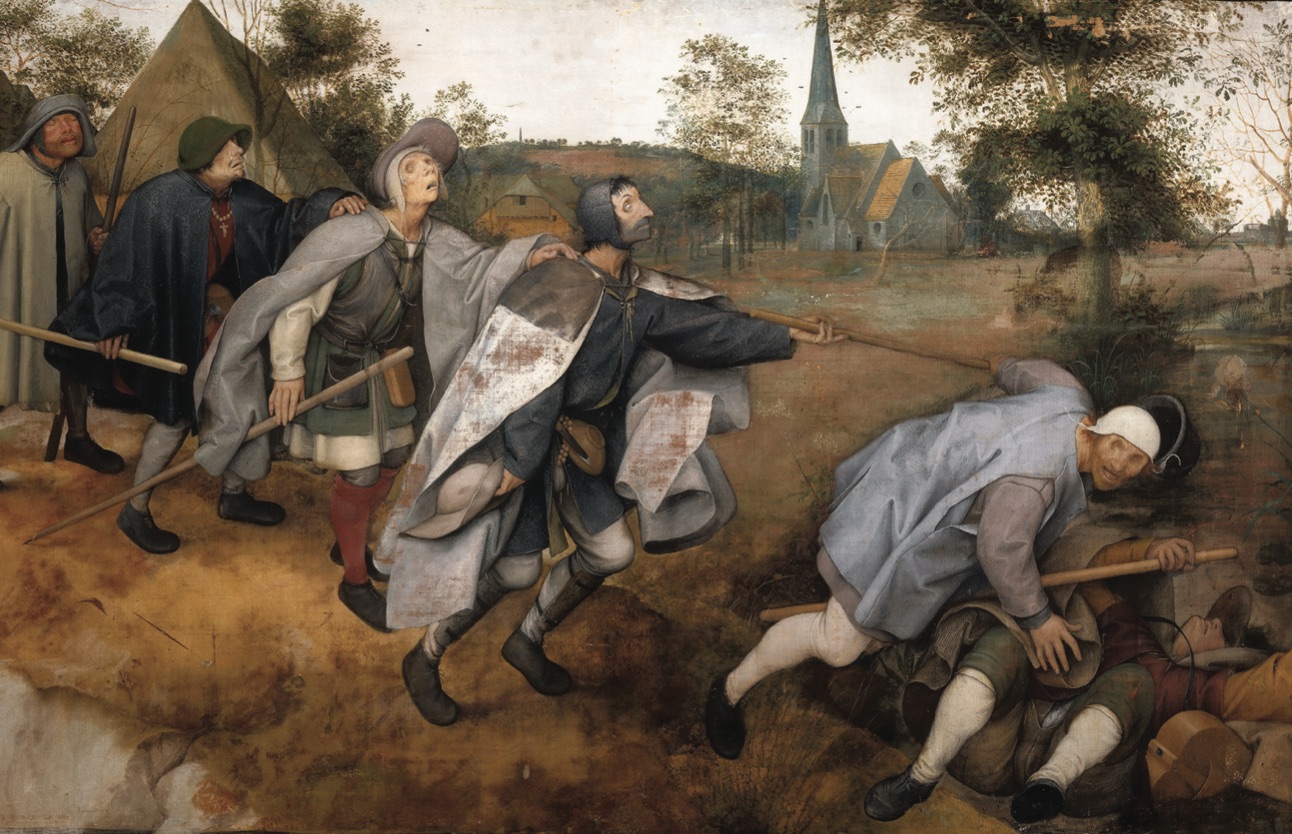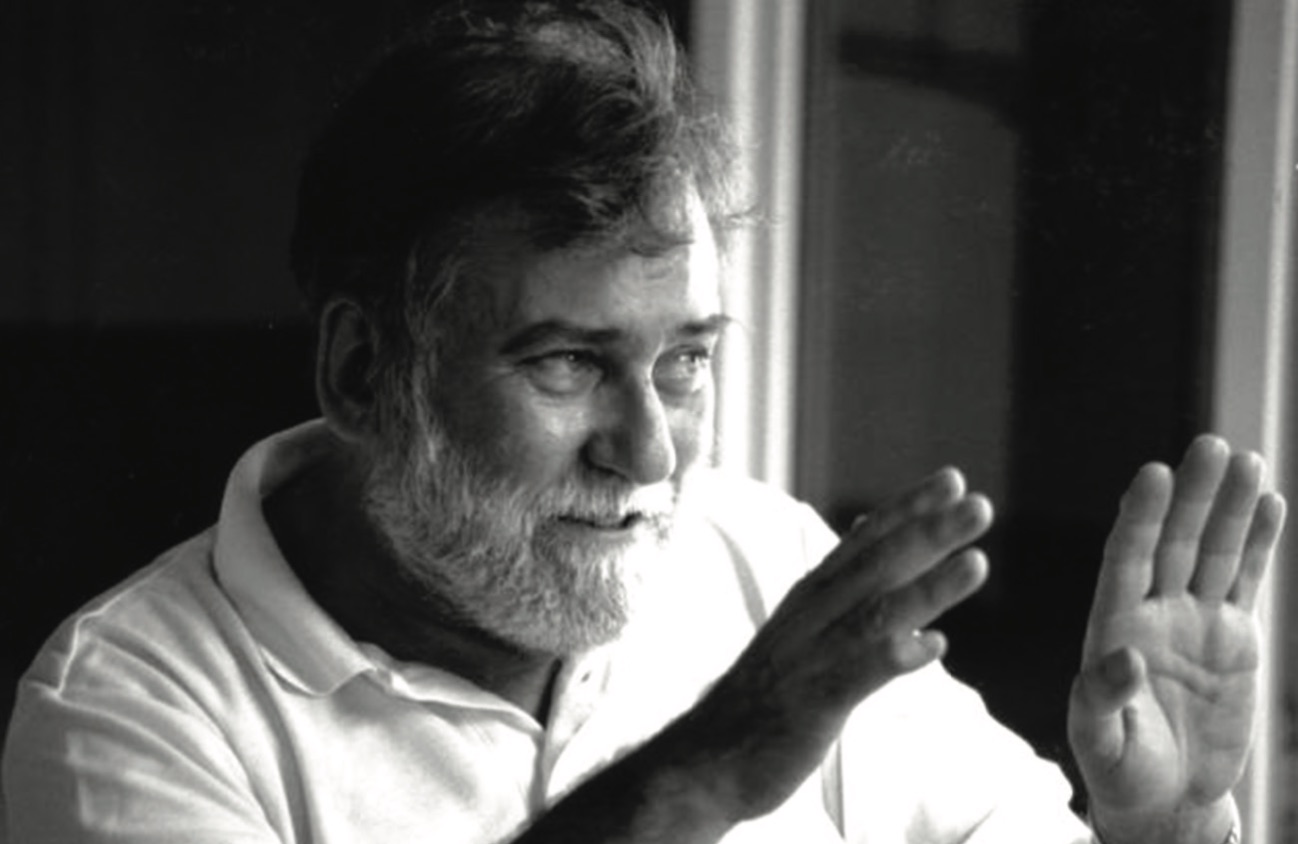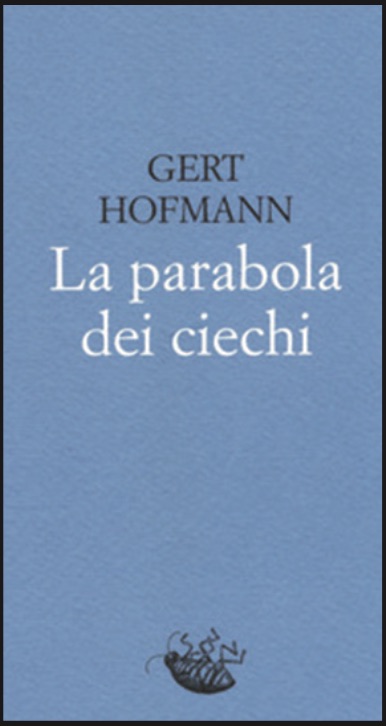It all begins with a painting. Tempera on canvas, "The parable of the blind,” one of the last works of Pieter Bruegel the Elder, was painted around 1568 and today can be admired at the National Museum of Capodimonte, in Naples. The Dutch painter, taking up a theme dear to colleagues like Bosch and Metsys, represents six blind men in a single line who, in a distressing and grotesque way, follow one another, stumbling, the first one having fallen into a ditch. Inspired by the parable of the Gospel of Luke (“Can a blind person guide another blind person?") as well as of Matthew's ("Leave them; they are blind guides [of the blind]." If a blind man leads a blind man, both will fall into a pit.”), the Dutch master's painting depicts in a realistic manner the uncertainty of the human condition and its spiritual blindness.

The allegorical meaning of Bruegel's masterpiece redefined the artistic panorama of the following periods becoming over time a reference not only in the world of painting as well as in the literary field. Among others, French poet Charles Baudelaire ([...] look! I drag myself along also! but, more bewildered than they, I ask, all these blind men, what are they looking for in the sky?) and American William Carlos Williams, Belgian playwright Nobel Prize winner Maeterlinck and German writer GertHofman. University professor and author of radio dramas who escaped from East Germany, Hofmann throughout his long and prolific career won numerous literary awards. The novel, written in 1985, whose title is the same as Bruegel's painting, is recounted using the first-person plural. This stylistic choice indicates the author's intent to involve readers, and with them the whole of humanity, in the development of his narrative. In fact, "we" becomes a way to tell not only a story, but our story. With a theatrical and sinister language, Hofmann recounts a story in the context of the war between Protestants and Catholics, which occurred during the second half of the sixteenth century. The group of blind men, the "we" in the story, moves and acts in a Europe suffering and destroyed by struggles and privations, in a Europe illuminated by flashes of wars. Such as those depicted in the painting, the blind men Hofmann writes about form a desperate and fragile group, who can do nothing against the cruelty around them.
They try in vain to help each other, irrationally placing their trust in their guide who is as blind as they are, wandering like pilgrims in their search to find the Great Painter who wants to portray them. This is the only opportunity for them to be seen by a world that ignores and mocks them. Desperate to find redemption, the six men walk in clothes torn to pieces, dirty, confused, meeting along their wretched path other human beings, characters who deceive them, deride them, mock them, impairing their dignity.

With great skill, the author portrays with his words the landscape of the painting, using different details as scenic elements in the six travellers' journey, unable to guide themselves in the darkness of their existence, the six blind men are us. More than four hundred years have passed since Bruegel's painting, and thirty-five from the first edition of Hofmann's novel. But in the book's hundred pages (published in Italy by Ganda in 1988 and republished more recently by Racconti Edizioni with an afterword by Michael Hofmann, son of the author) echoes the darkness of the path that each one of us travels in our existence.

Like the blind men, let us penetrate in the lyricism of his words to try to understand the ridiculousness, there is in the certainties to which we cling, every day, hoping that, in the end, someone will portray our truth. When, perhaps, more than looking for confirmation in the eyes of others, we should learn to find it in that of our lost souls.

.jpg)



.png)